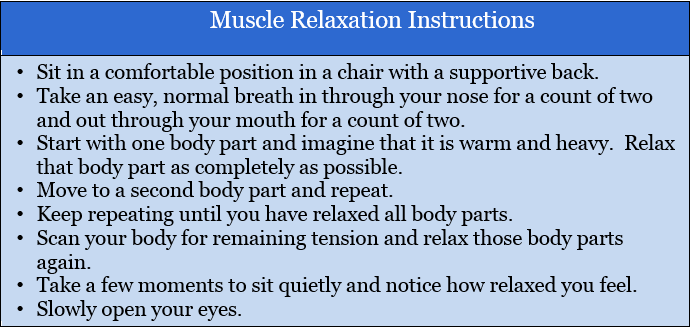The information provided in these materials is based on research on managing difficult emotions. Psychological or emotional distress is common in people with medical illnesses. Up to 50% of patients report experiencing emotional distress including depression and anxiety.1-7 This distress can increase over time,1 is associated with more physical symptoms8-13 and poor quality of life.4,5,14 Further, patients with emotional distress experience more limitations in their daily lives and work activities,14 more occupational absenteeism, and worse physical symptoms.15 While medications can be helpful for distress, some people with medical illnesses experience negative side effects from these medicines. Other people cannot use these medicines because they interact with other medications they are taking.16,17 All patients should talk with their medical providers about whether these medications are appropriate for them. Fortunately, there are effective treatments for psychological distress that do not require taking a medication. Cognitive-behavioral therapy (CBT) is the most well-researched psychological treatment for distress in people with medical illnesses.18-20 CBT focuses on how a person’s thoughts and actions are impacting their emotions. After identifying problematic thoughts and emotions, CBT helps people find different ways of thinking and behaving that reduce negative emotions and increase positive emotions.21 Research on CBT interventions for people with medical illnesses shows that these interventions successfully reduce difficult emotions.18,22
References
- Bisschop MI, Kriegsman DM, Deeg DJ, Beekman AT, van Tilburg W. The longitudinal relation between chronic diseases and depression in older persons in the community: the Longitudinal Aging Study Amsterdam. Journal of clinical epidemiology. 2004;57(2):187-194.
- Tran J, Dorstyn DS, Burke AL. Psychosocial aspects of spinal cord injury pain: a meta-analysis. Spinal cord. May 10 2016.
- Penninx BWJH, Beekman ATF, Ormel J, et al. Psychological status among elderly people with chronic diseases: Does type of disease play a part? Journal of Psychosomatic Research. 5// 1996;40(5):521-534.
- Fontana RJ, Hussain KB, Schwartz SM, Moyer CA, Su GL, Lok ASF. Emotional distress in chronic hepatitis C patients not receiving antiviral therapy. Journal of Hepatology. 3// 2002;36(3):401-407.
- Blinderman CD, Homel P, Andrew Billings J, Tennstedt S, Portenoy RK. Symptom Distress and Quality of Life in Patients with Advanced Chronic Obstructive Pulmonary Disease. Journal of Pain and Symptom Management. 7// 2009;38(1):115-123.
- Siegel K, Lekas H-M. AIDS as a chronic illness: psychosocial implications. Aids. 2002;16:S69-S76.
- Arnow BA, Hunkeler EM, Blasey CM, et al. Comorbid depression, chronic pain, and disability in primary care. Psychosomatic medicine. Mar-Apr 2006;68(2):262-268.
- Brown LF, Kroenke K. Cancer-related fatigue and its associations with depression and anxiety: a systematic review. Psychosomatics. Sep-Oct 2009;50(5):440-447.
- Delgado-Guay M, Parsons HA, Li Z, Palmer JL, Bruera E. Symptom distress in advanced cancer patients with anxiety and depression in the palliative care setting. Support Care Cancer. May 2009;17(5):573-579.
- Reddy SK, Parsons HA, Elsayem A, Palmer JL, Bruera E. Characteristics and correlates of dyspnea in patients with advanced cancer. J Palliat Med. Jan 2009;12(1):29-36.
- Salvo N, Zeng L, Zhang L, et al. Frequency of Reporting and Predictive Factors for Anxiety and Depression in Patients with Advanced Cancer. Clin Oncol (R Coll Radiol). 2012;24(2):139-148.
- Bruera E, Schmitz B, Pither J, Neumann CM, Hanson J. The frequency and correlates of dyspnea in patients with advanced cancer. J Pain Symptom Manage. May 2000;19(5):357-362.
- Andrykowski MA. The role of anxiety in the development of anticipatory nausea in cancer chemotherapy: a review and synthesis. Psychosomatic medicine. Jul-Aug 1990;52(4):458-475.
- Shih M, Simon PA. Health-related quality of life among adults with serious psychological distress and chronic medical conditions. Quality of Life Research. 2008;17(4):521-528.
- Munir F, Yarker J, Haslam C, et al. Work Factors Related to Psychological and Health-Related Distress Among Employees with Chronic Illnesses. Journal of Occupational Rehabilitation. 2007;17(2):259-277.
- Molton IR, Terrill AL. Overview of persistent pain in older adults. The American psychologist. Feb-Mar 2014;69(2):197-207.
- Nightingale G, Hajjar E, Swartz K, Andrel-Sendecki J, Chapman A. Evaluation of a pharmacist-led medication assessment used to identify prevalence of and associations with polypharmacy and potentially inappropriate medication use among ambulatory senior adults with cancer. Journal of clinical oncology : official journal of the American Society of Clinical Oncology. May 1 2015;33(13):1453-1459.
- Greer JA, Traeger L, Bemis H, et al. A Pilot Randomized Controlled Trial of Brief Cognitive-Behavioral Therapy for Anxiety in Patients with Terminal Cancer. Oncologist. Jun 11 2012.
- Li C, Xu D, Hu M, et al. A systematic review and meta-analysis of randomized controlled trials of cognitive behavior therapy for patients with diabetes and depression. J Psychosom Res. Apr 2017;95:44-54.
- Arico D, Raggi A, Ferri R. Cognitive Behavioral Therapy for Insomnia in Breast Cancer Survivors: A Review of the Literature. Frontiers in psychology. 2016;7:1162.
- Freeman A. Clinical applications of cognitive therapy. Springer Science & Business Media; 2004.
- Duijts SF, Faber MM, Oldenburg HS, van Beurden M, Aaronson NK. Effectiveness of behavioral techniques and physical exercise on psychosocial functioning and health-related quality of life in breast cancer patients and survivors--a meta-analysis. Psychooncology. Feb 2011;20(2):115-126.



